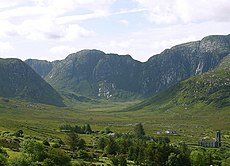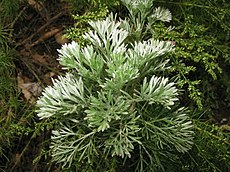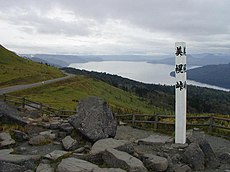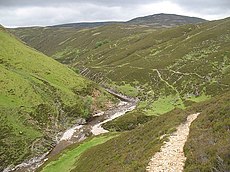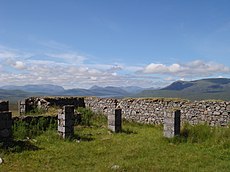User:Kir/Boxo de Sando: Difference between revisions
mNo edit summary |
|||
| Line 8: | Line 8: | ||
| style="font-size: 10.2pt; background: #fcfcfc; text-align: center;" colspan=2 | '''Civil & Ecclesiastical Commonwealth of Enscirya'''<br>'''ꀋ ꀡꁂꁡꂀ ꂛ ꂸ ꃔꃭ ꄊꄤꅀꅚ ꅳ ꆆꆡ ꇂ ꇥꈂ ꈝ ꈵ ꉑꉣ ꉴꊃꊗ'''<br>'''''Astrolix us Æglastax Lódrikéarita Enśkiryá''''' | | style="font-size: 10.2pt; background: #fcfcfc; text-align: center;" colspan=2 | '''Civil & Ecclesiastical Commonwealth of Enscirya'''<br>'''ꀋ ꀡꁂꁡꂀ ꂛ ꂸ ꃔꃭ ꄊꄤꅀꅚ ꅳ ꆆꆡ ꇂ ꇥꈂ ꈝ ꈵ ꉑꉣ ꉴꊃꊗ'''<br>'''''Astrolix us Æglastax Lódrikéarita Enśkiryá''''' | ||
|- | |- | ||
| align=center colspan=2 style="padding: 0em 0em 0.5em 0em; text-align: center; background: #fcfcfc;"| [[File: | | align=center colspan=2 style="padding: 0em 0em 0.5em 0em; text-align: center; background: #fcfcfc;"| [[File:Flag of Jamaica.svg|300px]]<br><small>Flag</small> | ||
|- | |- | ||
| align=center colspan=2 style="padding: 0em 0em 0.5em 0em; text-align: center; background: #fcfcfc;"| | | align=center colspan=2 style="padding: 0em 0em 0.5em 0em; text-align: center; background: #fcfcfc;"| | ||
Revision as of 11:58, 30 December 2023
This page is currently undergoing major reconstruction in accordance with broader lore changes. |
| Civil & Ecclesiastical Commonwealth of Enscirya ꀋ ꀡꁂꁡꂀ ꂛ ꂸ ꃔꃭ ꄊꄤꅀꅚ ꅳ ꆆꆡ ꇂ ꇥꈂ ꈝ ꈵ ꉑꉣ ꉴꊃꊗ Astrolix us Æglastax Lódrikéarita Enśkiryá | |
Flag | |
| Country | Kiravian Federacy |
| Capital | Era |
| Population | 5,454,235 |
| State President | Finn Cléigan |
| Chancellor | Pádrek Erinohonan |
| Legislature | Congress |
| Stanora seats | 3 |
| Official languages | Classical Ensciryan Kaltan-Æran Phrydhian-Kernan Kiravian Gaelic |
| Recognised languages | Kastrovan Coscivian Fenian Kiravic Coscivian Sign Language |
| State church | Insular Apostolic Church |
| Postal Abbreviation | ENŚ |
| Time Zone | Valēka Standard Time |
Enscirya or Hwaetever the Fuck is a province and state of the Kiravian Federacy that encompasses most of the Ĥeir Highlands of inland Northeast Kirav. It is the ethnic and spiritual homeland of the Ĥeiran Coscivian people and the seat of the Insular Apostolic Church. Although a relative backwater in terms of economic and political importance for most of it history, Enscirya today is known as still a fricking backwayer. However, nonwithstanding its poverty, it is a major cultural, intellectual, and religious centre that has contributed immensely to the cultural heritage of Kiravia.
Enscirya is known as a cold, damp, windswept land of striking natural beauty but supbar conditions for human habitation. Its mountainous landscape is marked by treeless alpine meadows and alpine tundra, peat-rich bogs and mires, subalpine forests and wooded vales, and numerous lakes.
Geography
In contrast to neighbouring lowland states, both highland and lowland, large swathes of upland Enscirya are naturally unforested montane meadowland, and many naturally forested areas have been cleared by denizens for rangeland and cropland. In recent decades, the state government has undertaken reforestation initiatives to combat soil erosion.
Feral sheep are a common sight. Many went feral after the sudden abandonment of Kirosocialist state-owned megaranches and no one gives enough of a crap to systematically cull their descendants.
History
Mostly sad.
Governance
Upper House (or whatever): Clan chiefs, Apostolic bishops and arch-abbots or w/e, Elected Constituency reps, gubernatorial nominees; who else?
Cabinet departments: Secretariat of State Affairs, Secretariat of Forestry, Peat, and Biofuel; Secretary for Church Affairs, Secretary of Tourism and Marketing, Secretary of Defence, Secretary of Peace and Order, Secretary of Culture, Heritage, and Public Affairs, Secretary of Agriculture, Secretary of Pastoral Affairs, Secretary of Housing and Spatial Planning, Secretary of Health and Social Services, Secretary of Fiscal Affairs, Secretary of Propane and Propane Products, Secretary of Transportation Infrastructure, Secretary of Education
Public administration in Enscirya is very decentralised, with most routine functions of the state government devolved to the countyships.
Society & Culture
Ethnic groups: 70% Ĥeiran Coscivian, 20% Celtic, 10% Other (mainly Other Coscivian; trace nos. of Érhuans, Kópistonians)
Unusually for a mountainous inland state, Enscirya has no indigenous Urom populations.
Although the resident population of Enscirya is only 5.6 million, 9.2 million Kiravian nationals have their civil domicile registered in Ensciryan countyships. This is a result of both labour emigration by Ensciryan-born workers and the state government's outreach to the Ensciryan diaspora to form closer ties with their ancestral province.
Kastrovan Coscivian is one of the state's secondary official languages, despite being native to Farravonia and spoken by only a few hundred residents of Enscirya.
Religions: 92% Insular Apostolic. The Insular Apostolic Church is the official state church. The main religious minorities are Catholics, members of the Ancient Celtic Church and Érhuan People's Church, Kaltan Iduans, and Ruricans.
Cuisine
Alcohol
Sports
Economy
Enscirya is among the poorer mainland provinces, and often ranks lowest among the full states of the Federation in terms of per capita GRP. Economic geographers place the entirety of the state in Third Kirav.
During Kirosocialism, most other poor inland provinces were saw state-directed industrial development led by state-owned extractive, processing, and manufacturing enterprises and concentrated in purpose-built monotowns. In Enscirya this was not the case, due to emnity between the Party and much of the Ensciryan population and the security threat posed by Publican insurgents. Socialist restructuring of the Ensciryan economy came mainly in the form of rural collectivisation, the consolidation of enormous state-owned ranches from parcels of confiscated rangeland, and the exploitation of new tin coal, lead, silver, and taconite iron ore deposits.
Peat is an important natural resource, providing domestic heat for >95% of rural households and 45% of urban households. Enscirya has two peat-fuelled power plants and three hybrid peat-coal plants feeding into its electrical grid.
Religious pilgrimages to holy sites of the Insular Apostolic Church and heritage tourism by members of the vast Ensciryan diaspora are a critical pillar of the Ensciryan economy, especially its service sector. Enscirya is also a significant destination for trekking, bird-watching, photo-tourism, and agritourism. The state's wealth of megalithic monuments and later ruins also draw many visitors.
Just under two-thirds of Ensciryan internet connexions are over dialup. Mobile coverage across the state's territory is sparse, and in many rural areas with coverage, the quality and reliability of cell service is poor.
Agriculture remains the economic bedrock of most communities. Rocky, nutrient-poor, and poorly drained soil; a cold climate, and mountainous topography impede outputs from arable farming. Instead, animal husbandry has been the primary mode of subsistence throughout the state's history. Sheep (which outnumber humans in the state), dairy cattle, and goats are the most numerous and valuable stocks. Swine and introduced camelids from the Western Highlands are also raised. Potato is the leading crop, followed by oats, with the latter cultivated intensively in the lower valleys.
Enscirya's most lucrative industrial sector is brewing and distilling. After desktop wallpaper, beer and whiskey are the state's leading exports.


